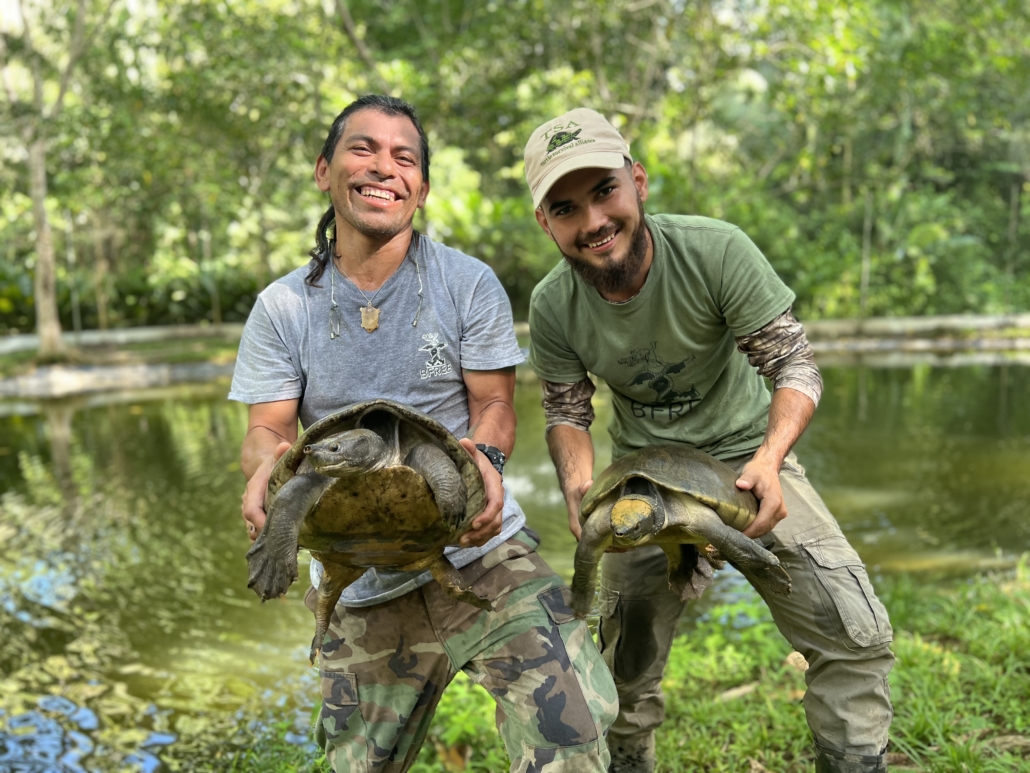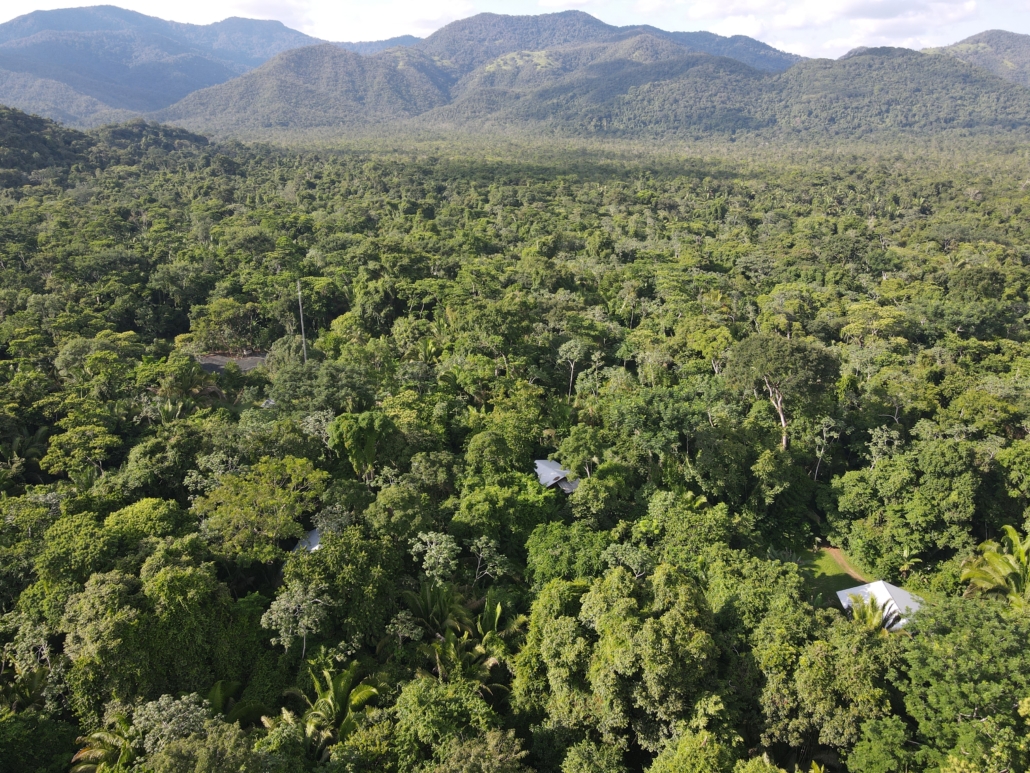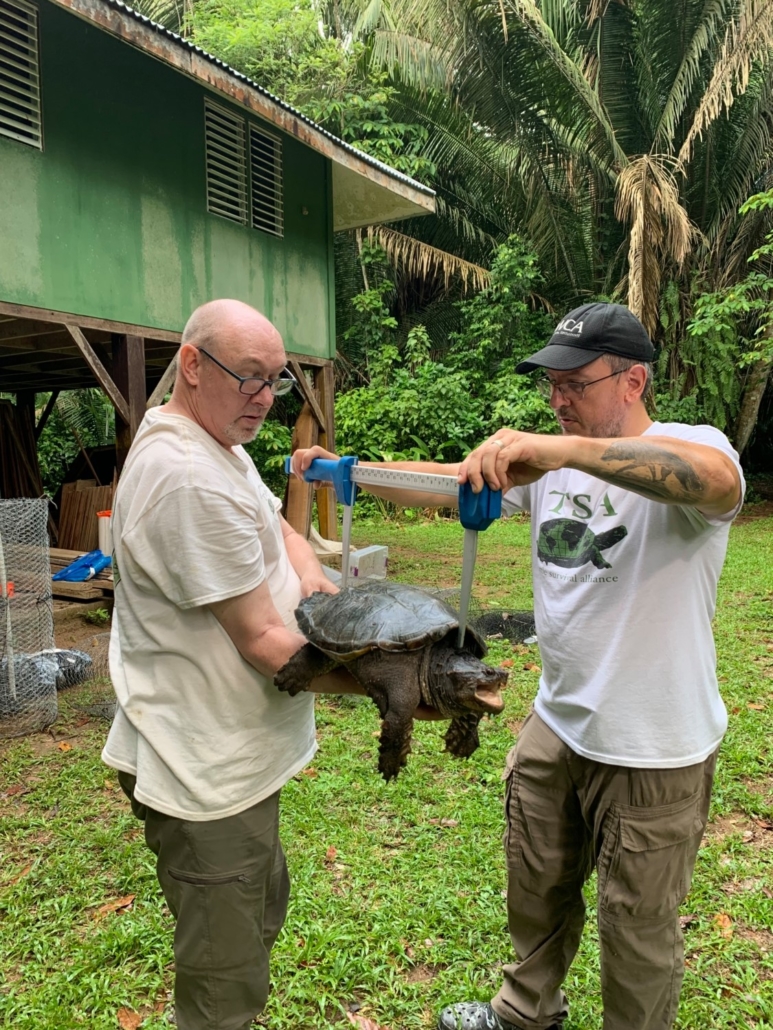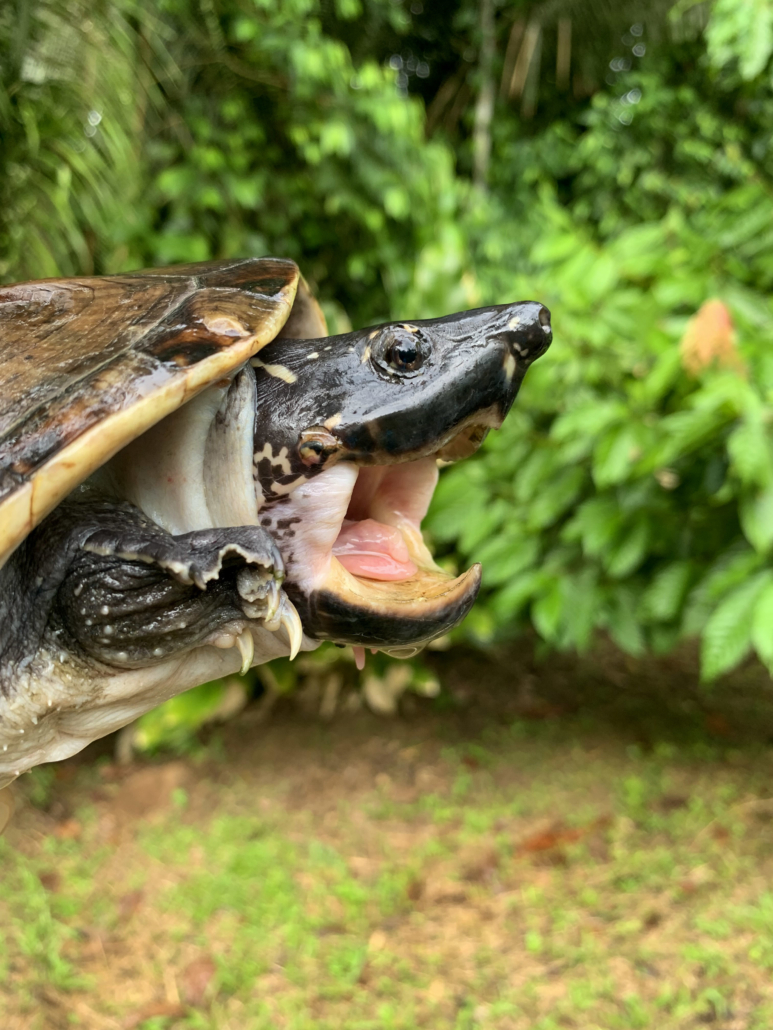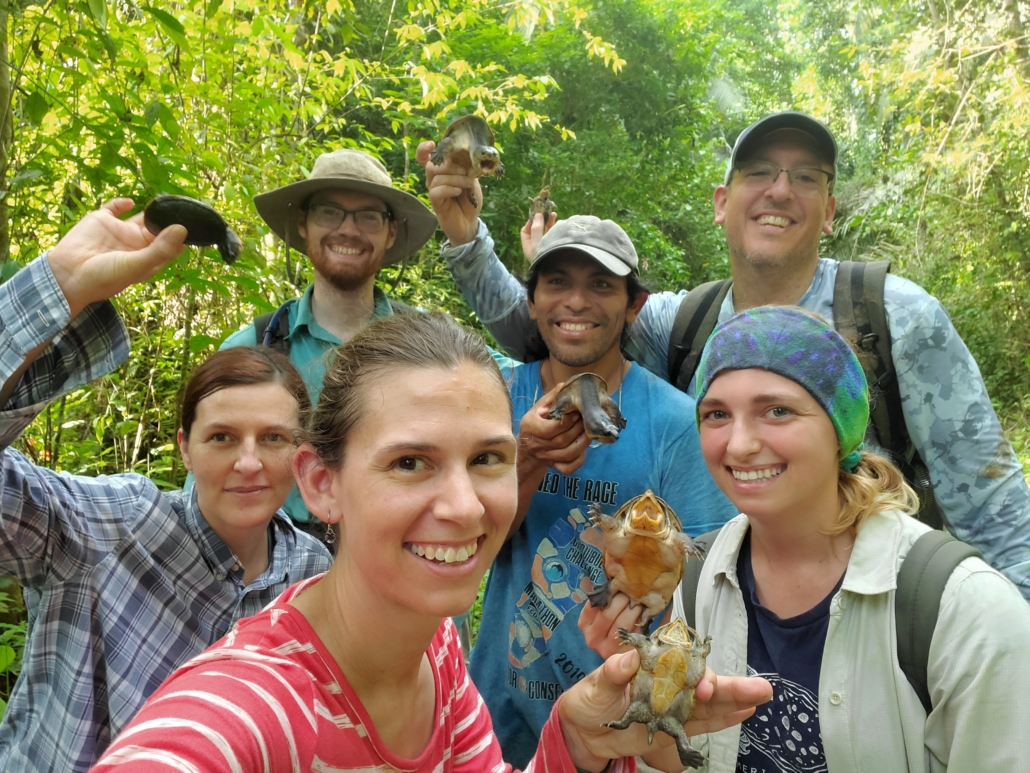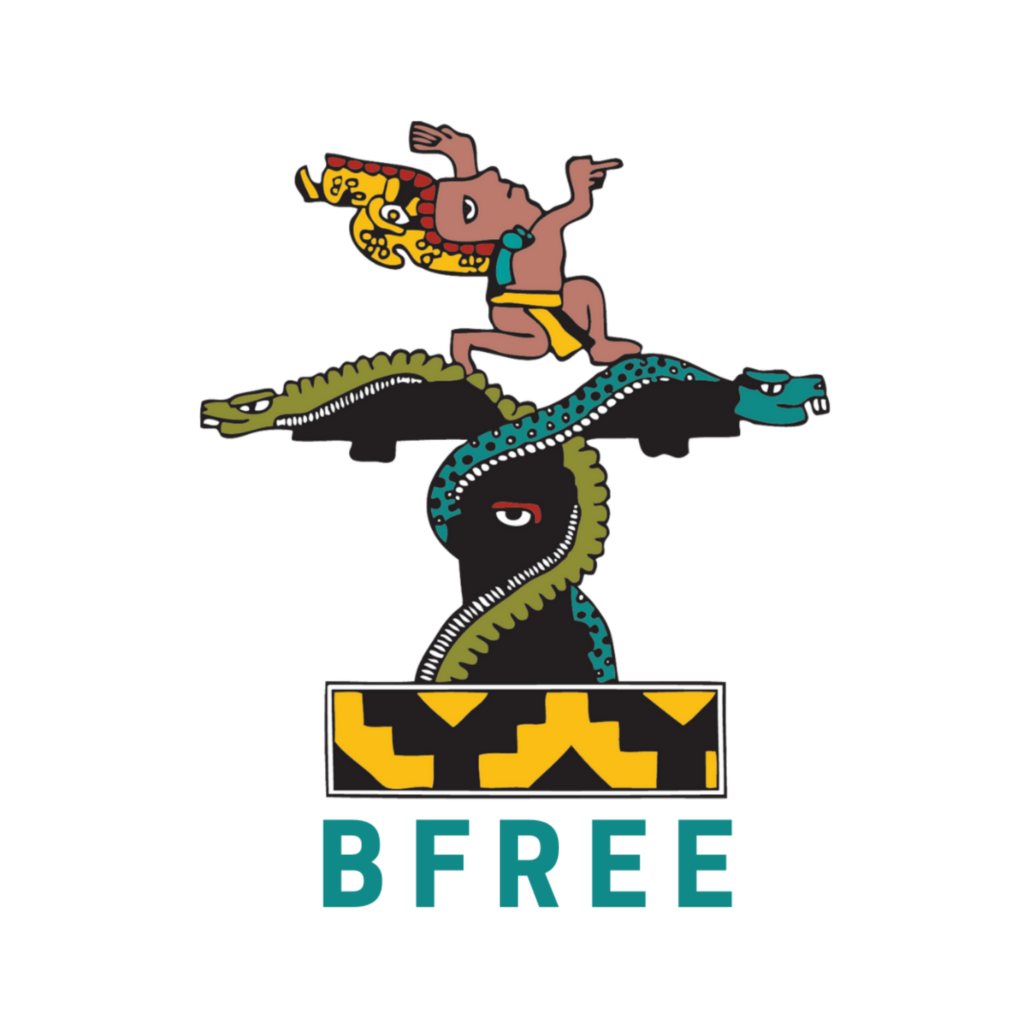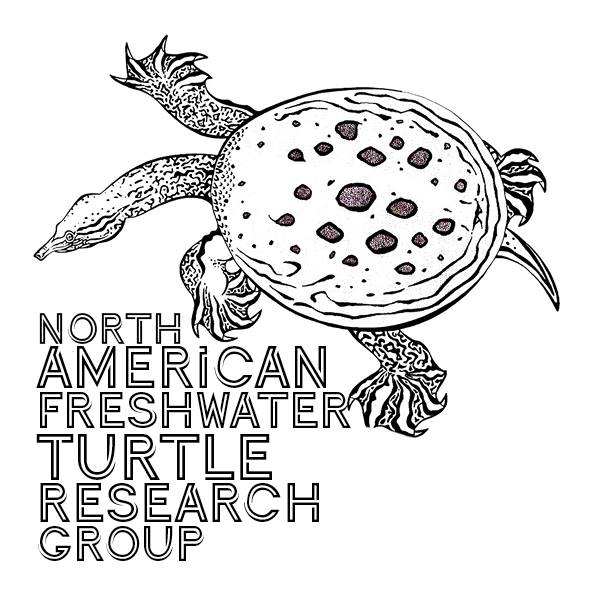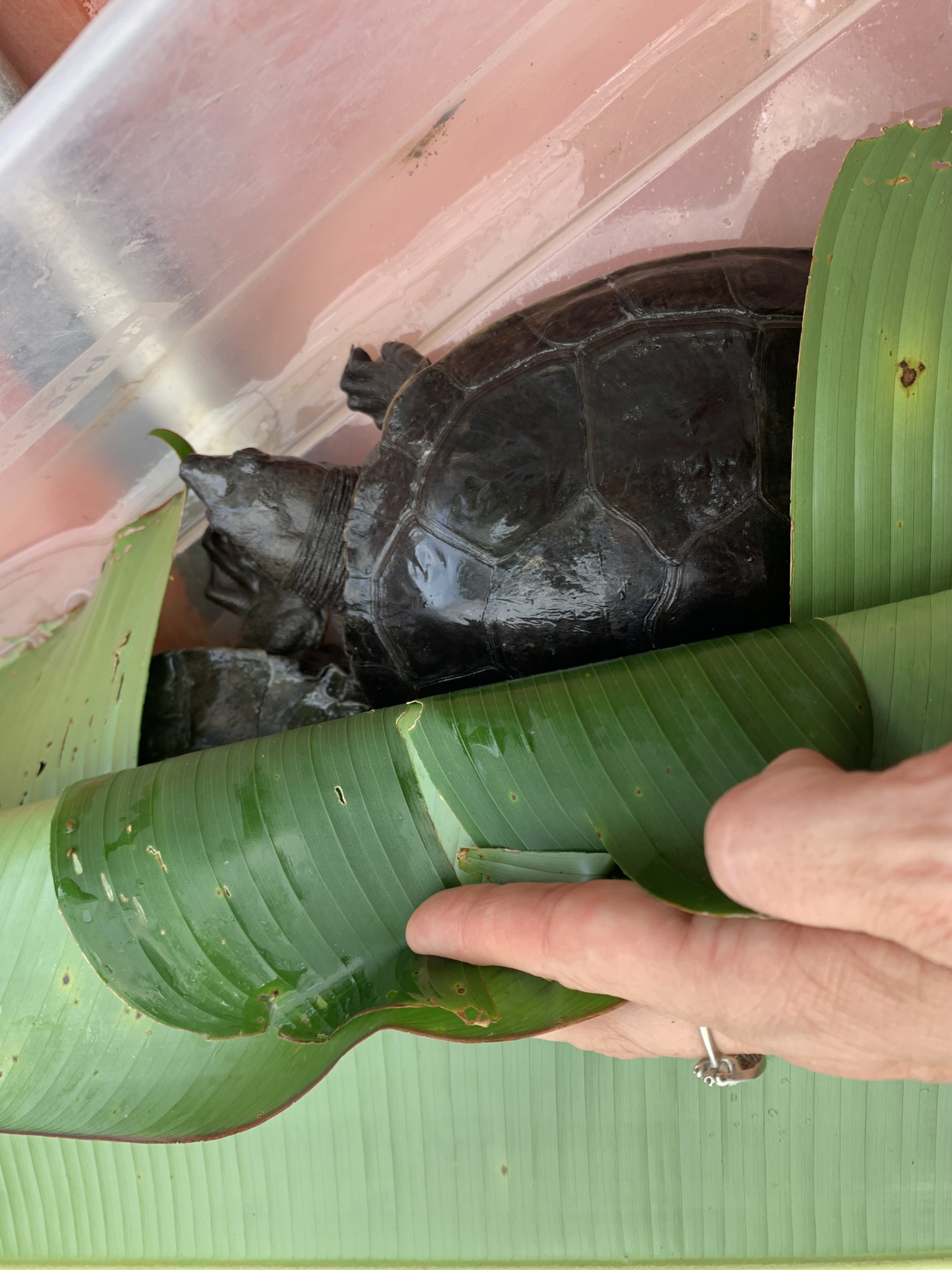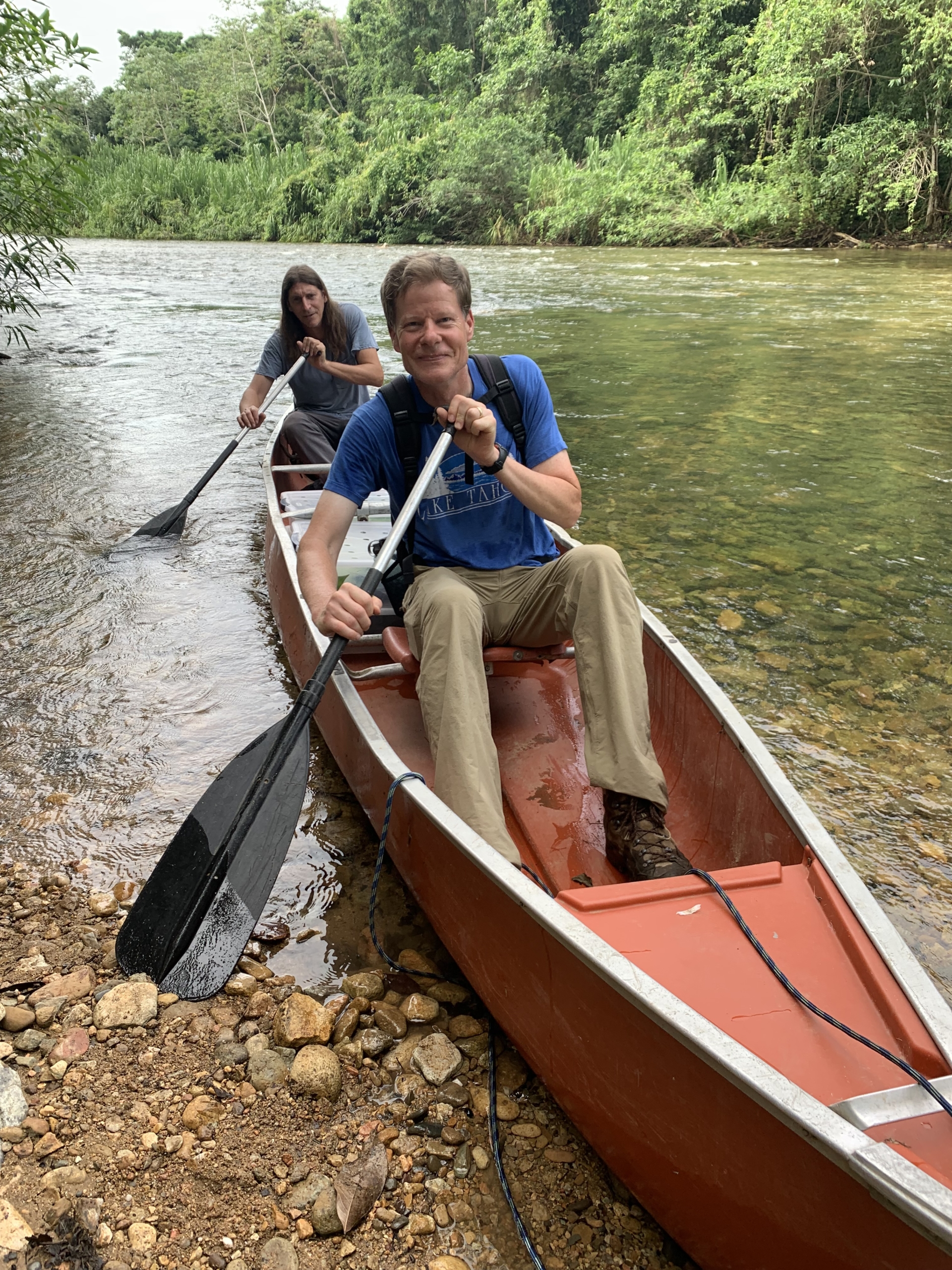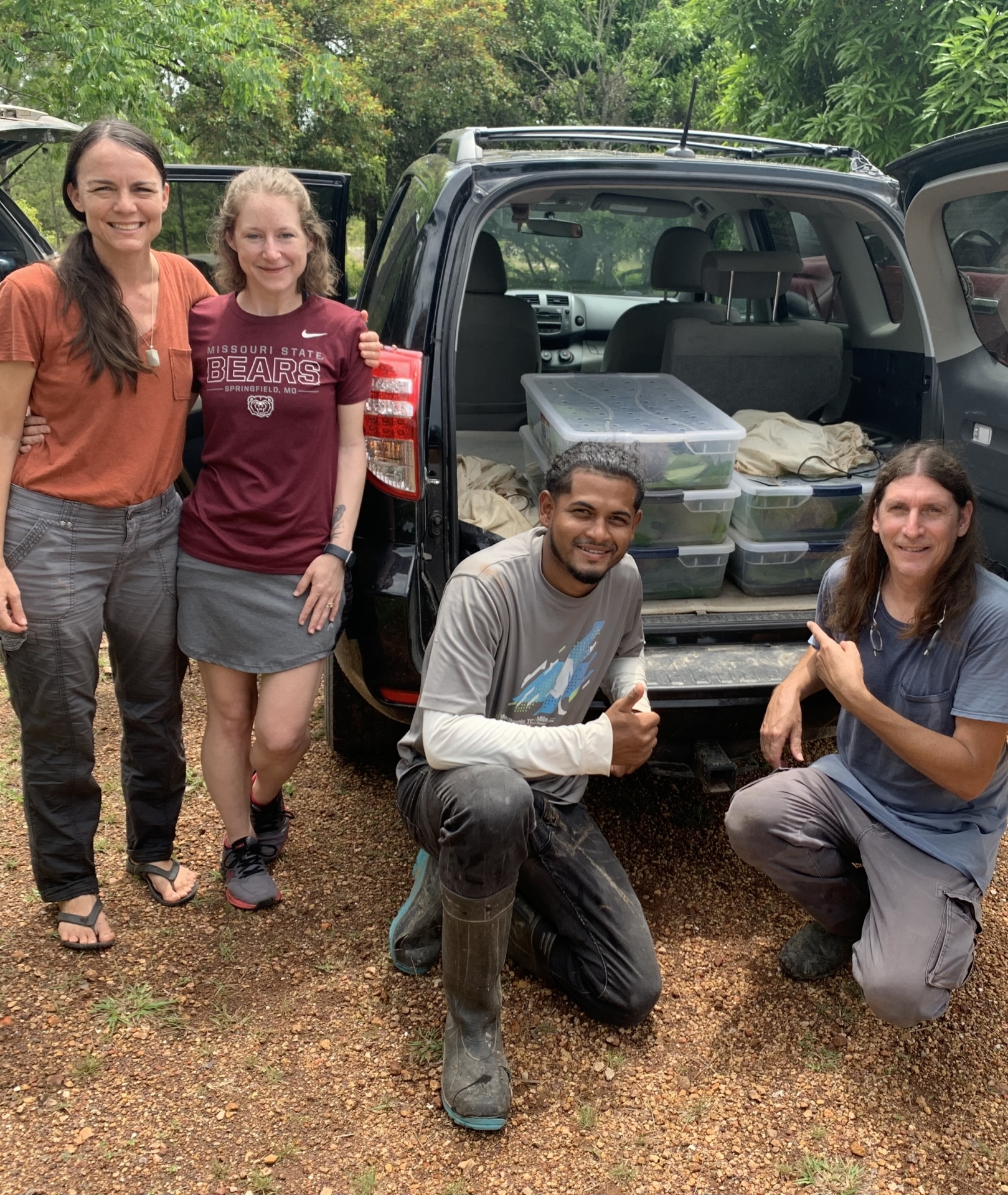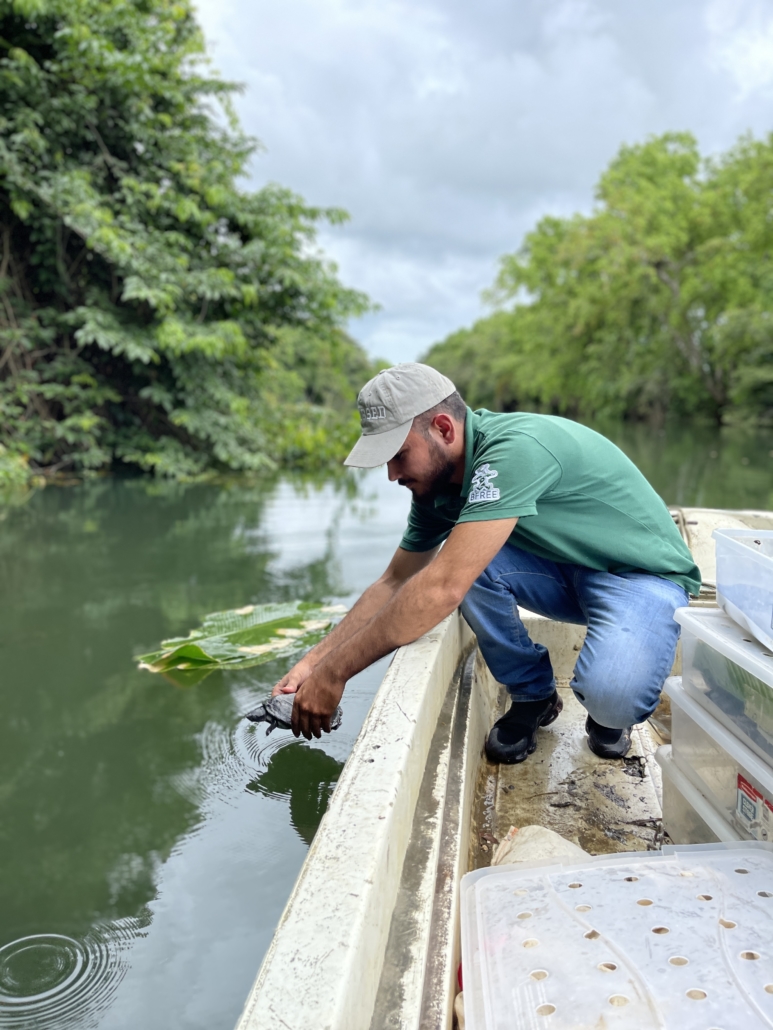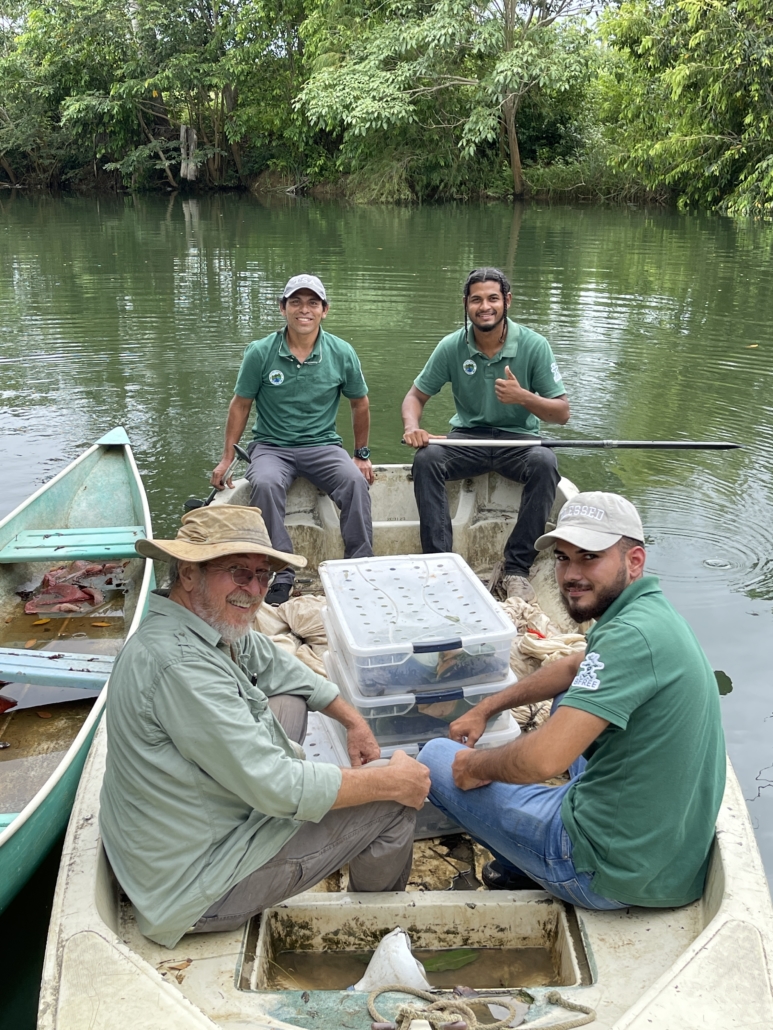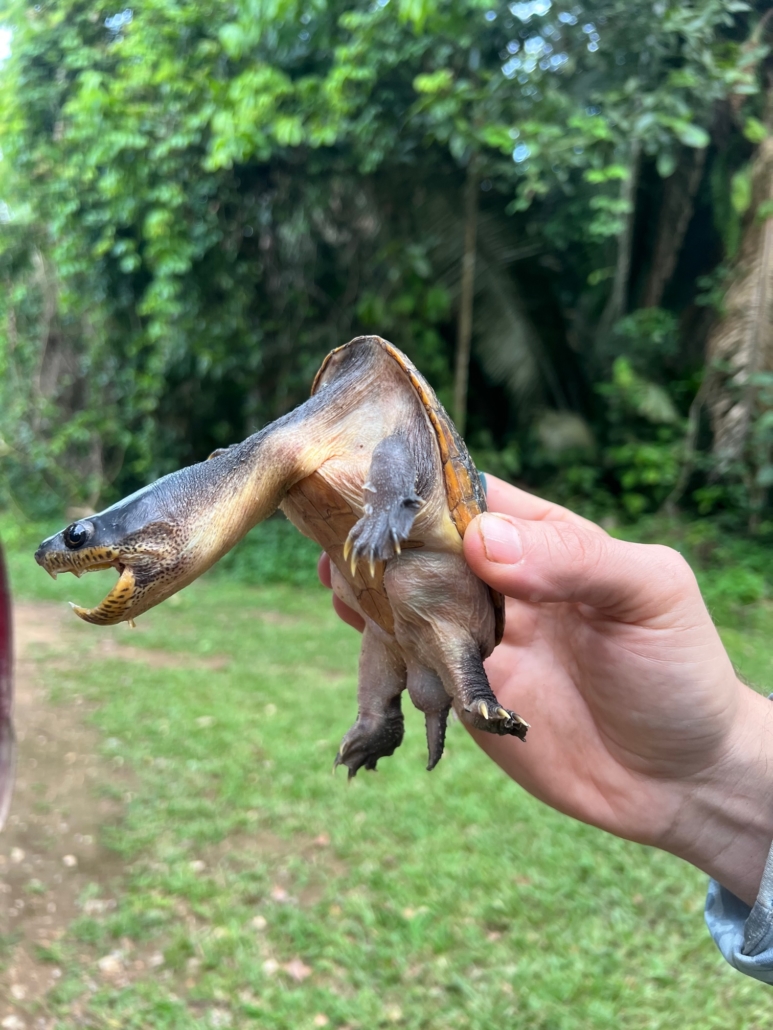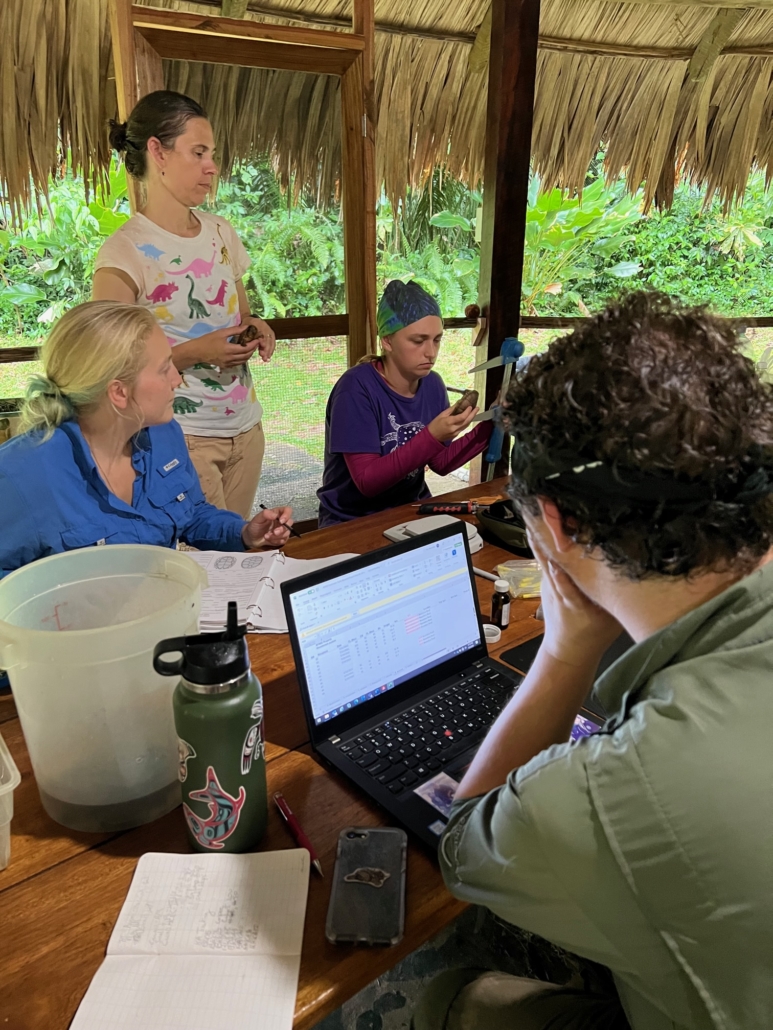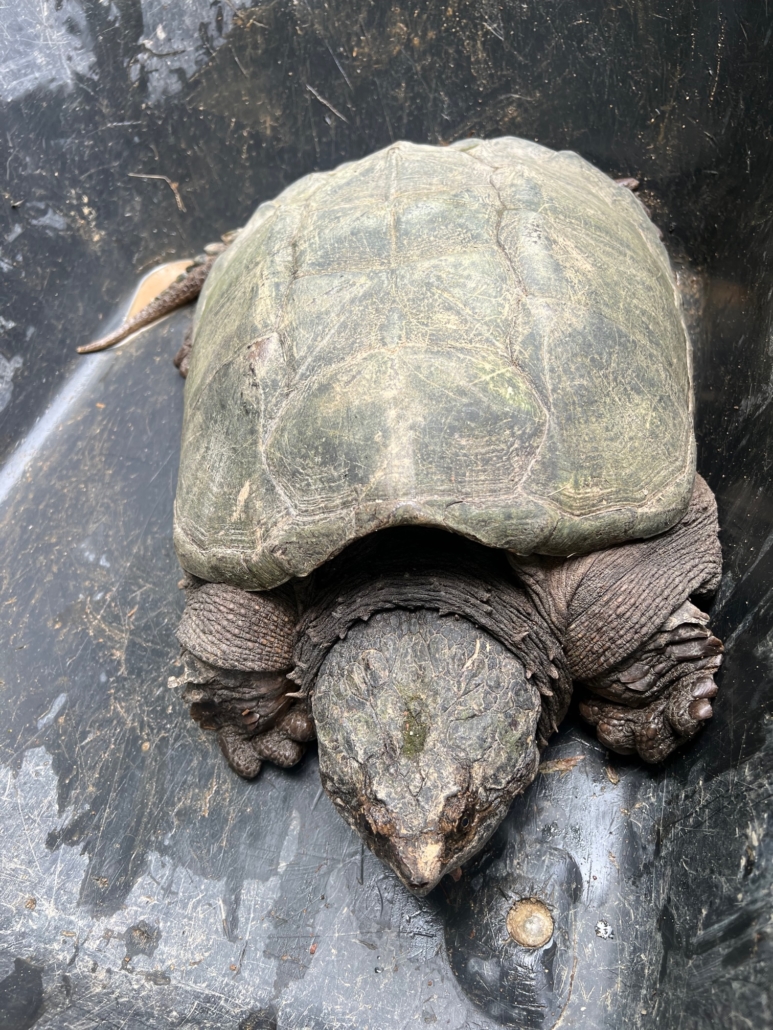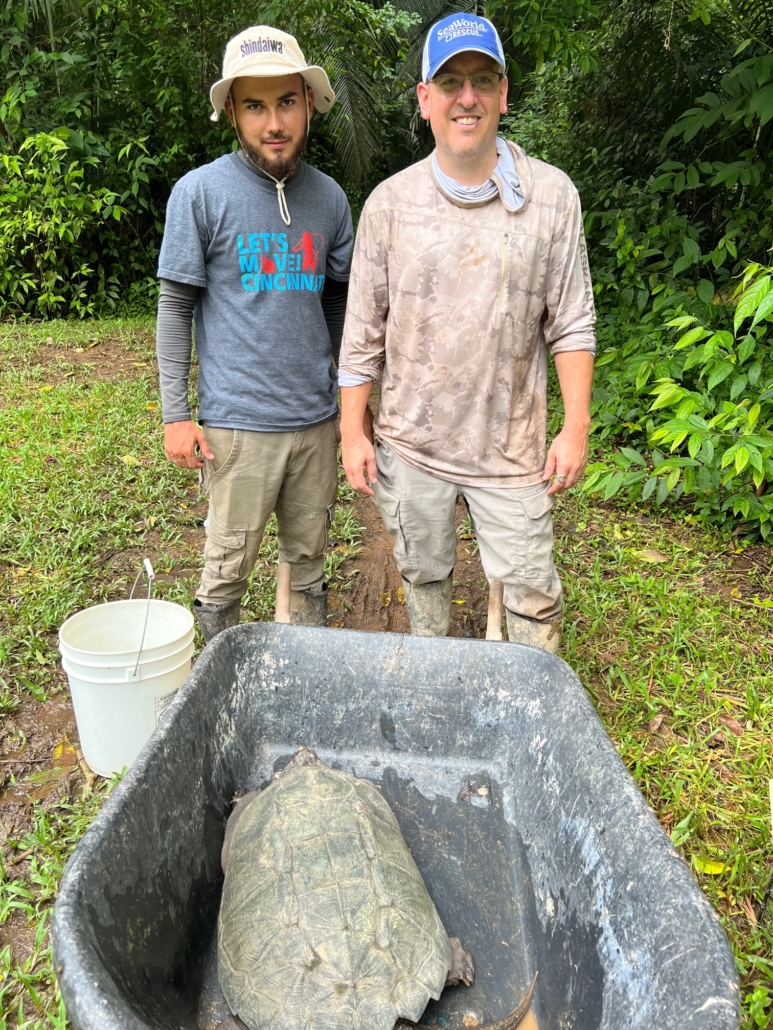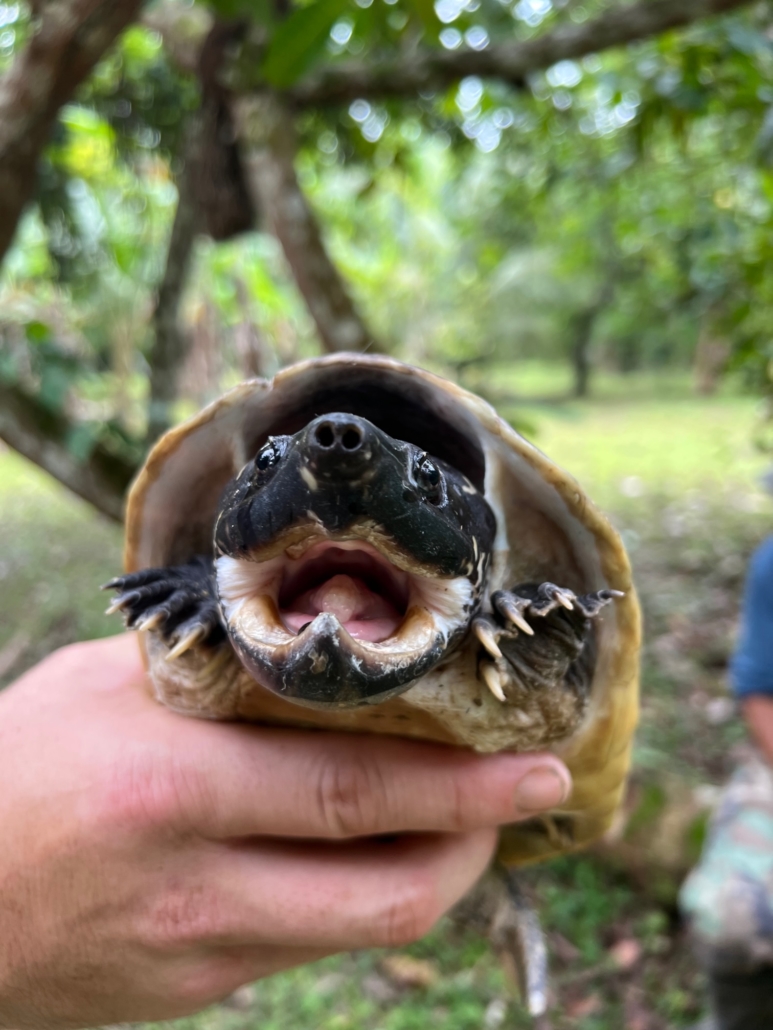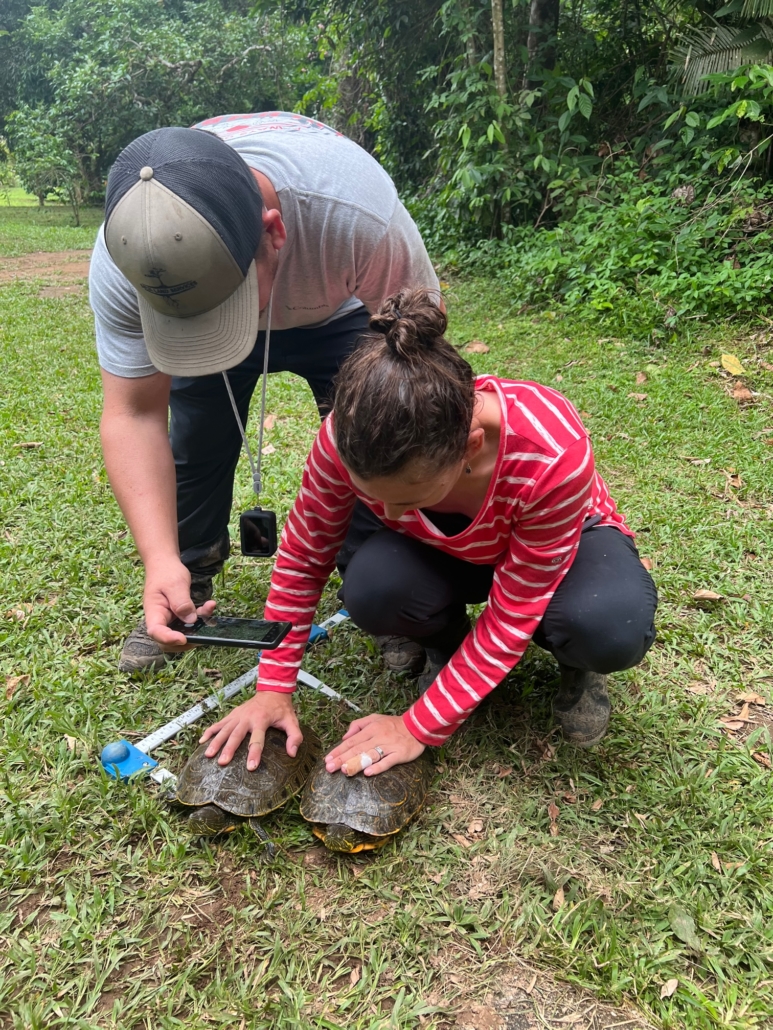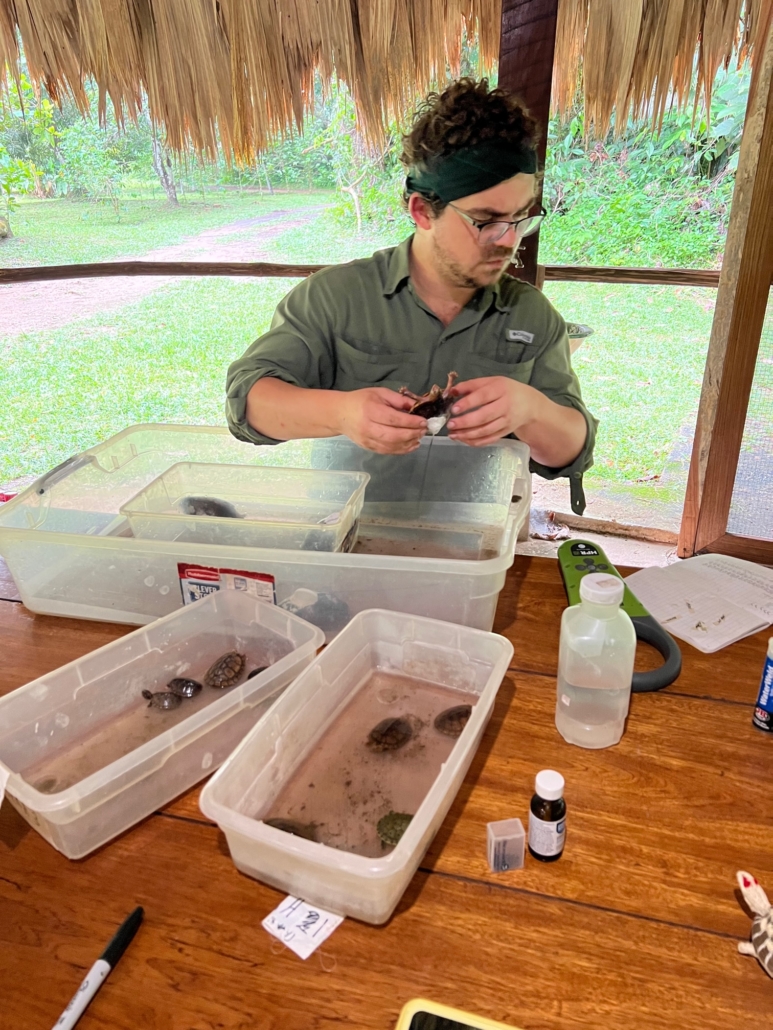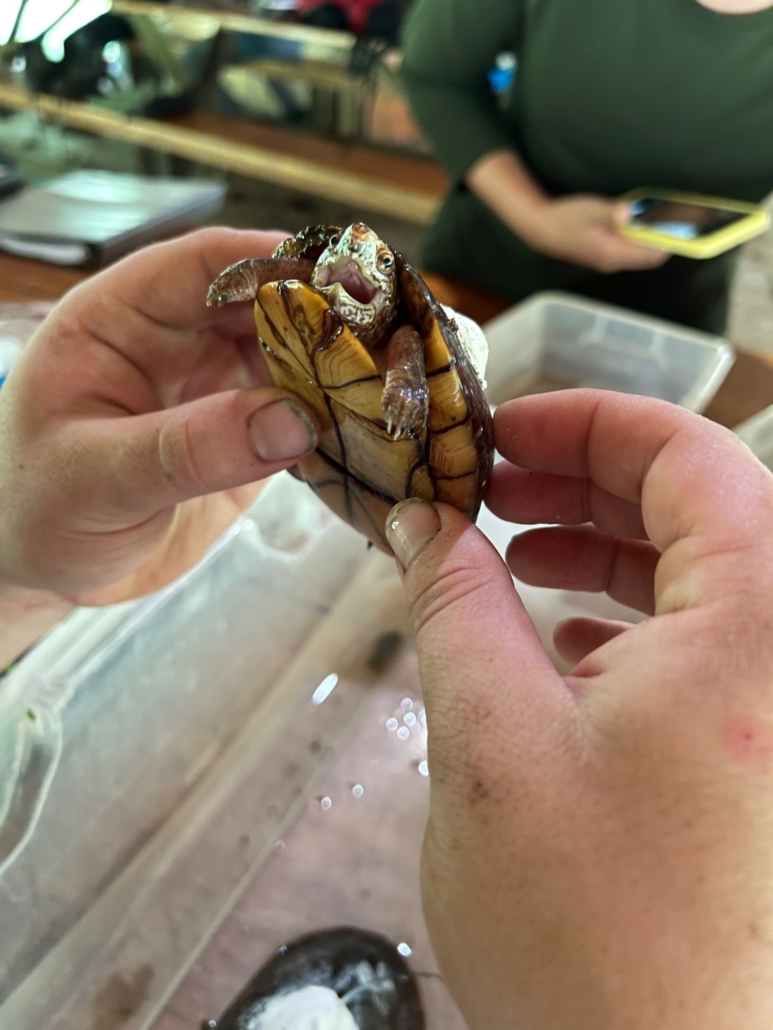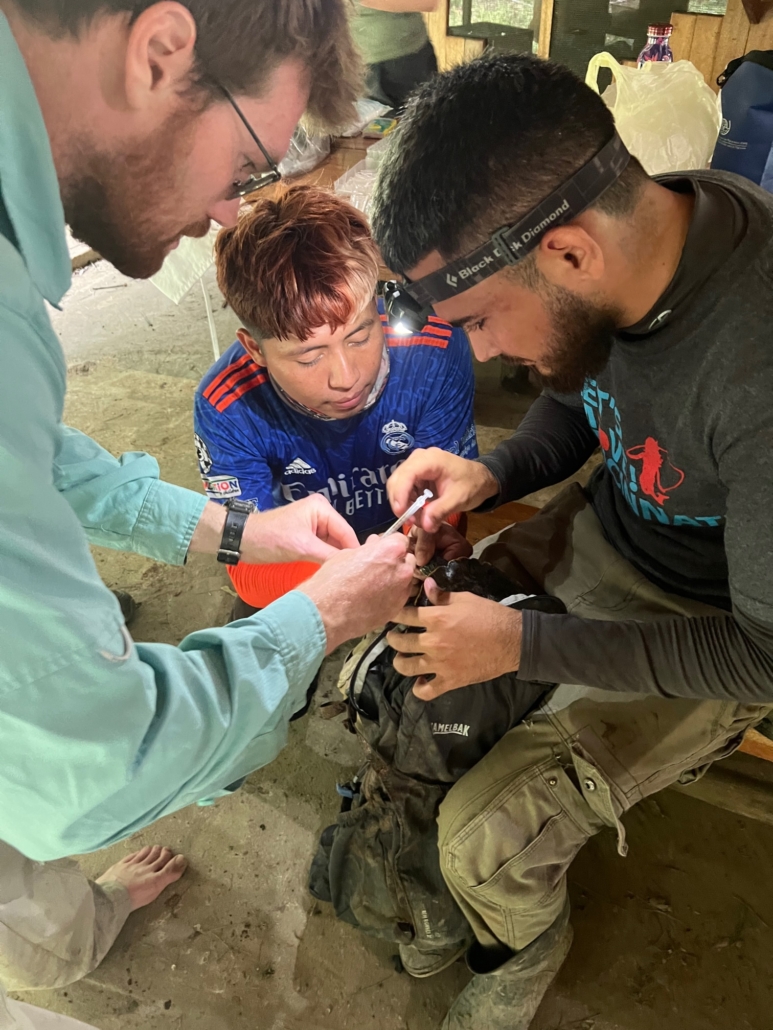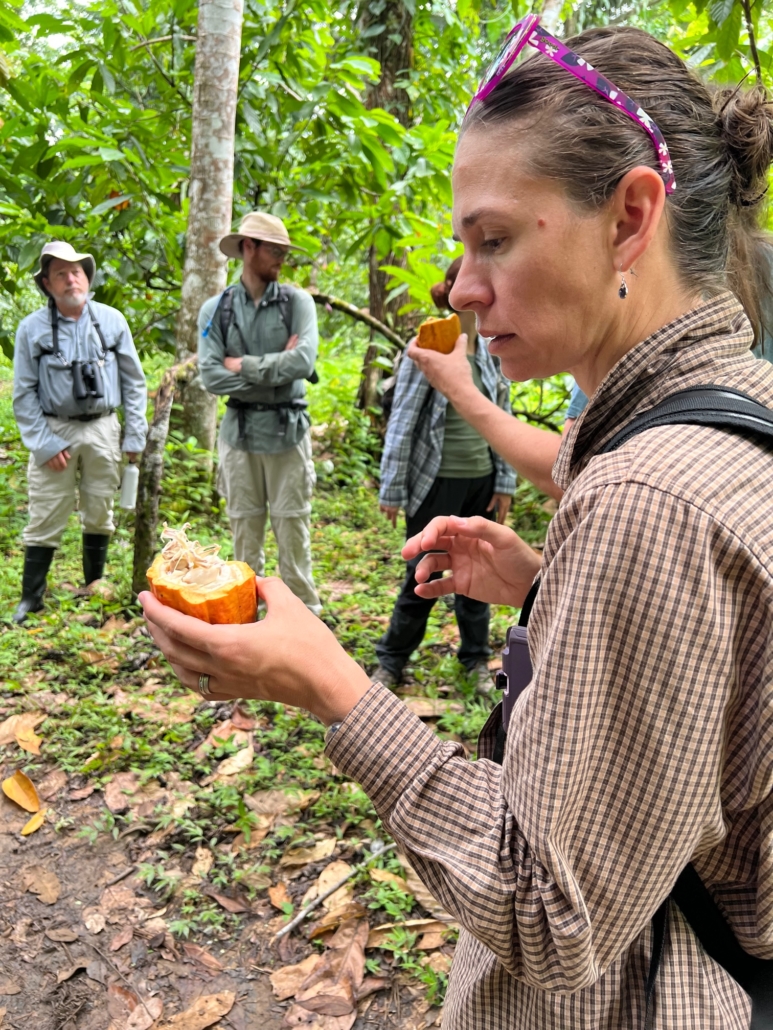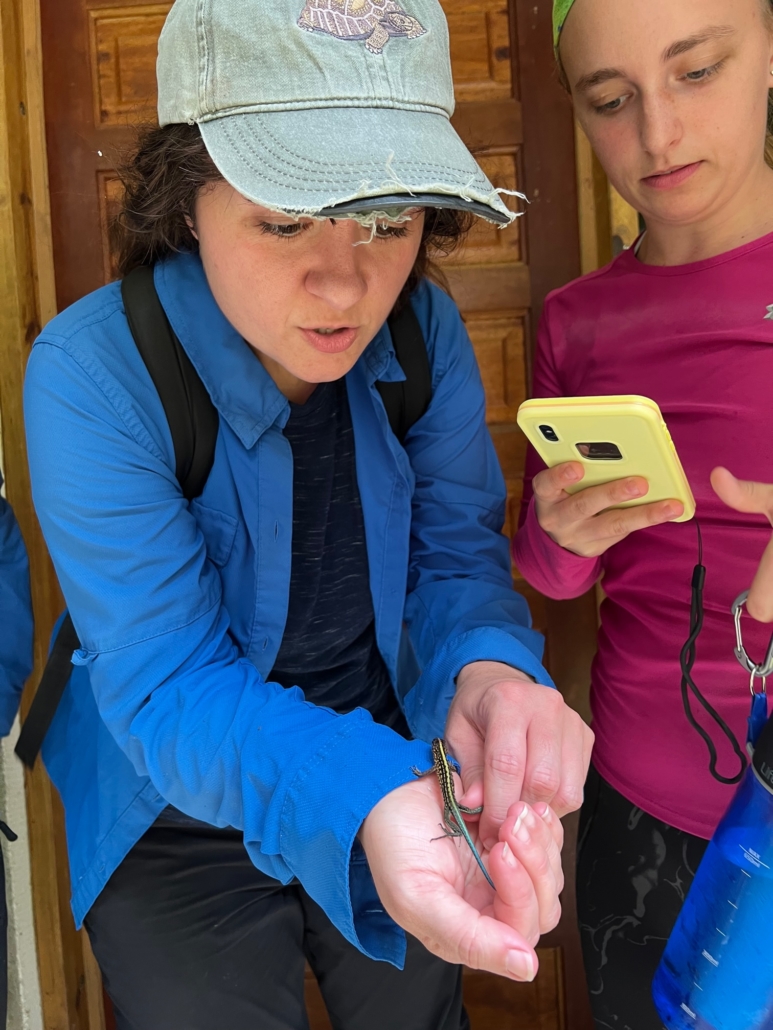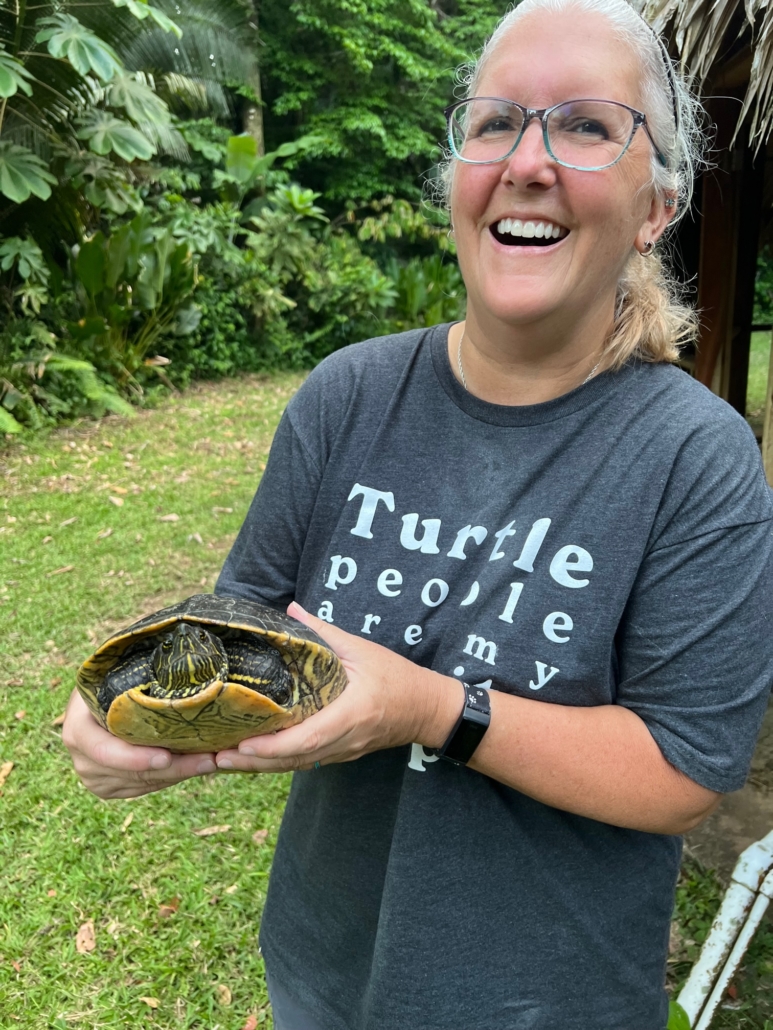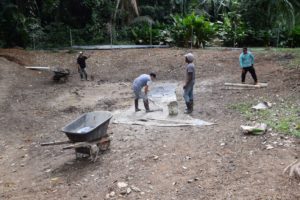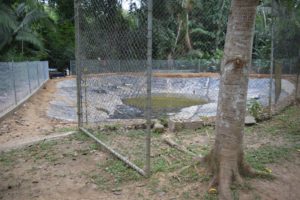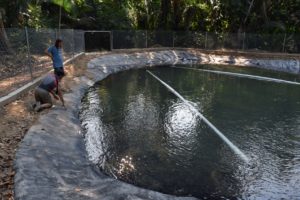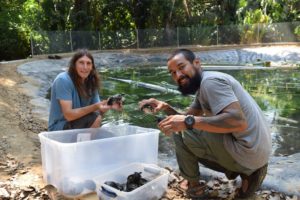Disney Conservation Hero – Thomas Pop
BFREE and our international partner in turtle conservation, Turtle Survival Alliance (TSA), are extremely proud to announce that Thomas Pop, manager of the Hicatee Conservation and Research Center was chosen as a Disney Conservation Hero. Tom has been recognized for over twelve years of tireless efforts to conserve the critically endangered Central American River Turtle, called Hicatee here in Belize.
Every year, the Disney Conservation Fund selects a handful of Conservation Heroes from around the world to highlight the conservation efforts of local citizens and their actions to save wildlife, protect habitats, and inspire communities to engage in conservation. Since 2004, Disney has honored more than 200 Conservation Heroes from more than 50 countries around the world.
About Tom Pop
Thomas “Tom” Pop began work with the HCRC in 2014 immediately after construction was completed. Located at BFREE, the HCRC was a brand-new project seeking to ensure the survival of the Central American River Turtle and it needed a manager who was trusted and had already proven their competency. Tom was hand-picked for the role by BFREE Executive Director, Jacob Marlin, who met him over 20 years before and had employed him consistently since then.
Tom is a Q’uechi’ Maya Belizean who was living in a small bush camp in an area called Chun Bank just across the river from the BFREE reserve. During the course of his youth, he worked as a logger who was excellent at his job. He was expertly skilled at felling massive trees throughout northern Belize.
When Jacob moved onto the BFREE reserve in 1995, his goal was to set up a field station and support the management of the neighboring Bladen Nature Reserve. He received a lease to live on and manage the 1,153-acre private property, which was covered in lowland tropical rainforest, but he couldn’t find the survey markers that define the edges of the property. After endless and unsuccessful searching, he asked his Mayan neighbors across the river if anyone knew about these small stone markers and if they could help him find them. The smiling, eager teenager who stepped forward to achieve the task, was a young Tom Pop.
Tom easily navigated through the forest and quickly found the first marker that Jacob needed to begin to establish the location of the property. Tom’s delightful nature, his remarkable skill in the jungle, and his constant curiosity about the world around him, made Jacob take note and remember him. A few years later, when Jacob needed to hire the first Park Rangers for the Bladen Nature Reserve, Tom applied to fill the role and was selected. By then, Tom had moved from Deep River Forest Reserve about 10 miles south to the village of Golden Stream.
Over the course of the next two decades, Tom served countless roles associated with BFREE’s conservation programs. Following his role as a ranger with the Bladen Nature Reserve, Tom filled jobs as they were offered and needed at the field station. The rainforest facility didn’t operate year-round in the beginning, so Tom’s work came in bits and pieces and often involved supporting visiting researchers. Each came to respect and value Tom’s skills and company so much that they requested to work with him above all other field technicians. Because of his skills and attitude, he has supported research on everything from birds to fish to turtles to sedges. To this day, Tom is beyond compare in the field – he is an excellent bush guide, has exceptional observation skills and is a quick study. Tom is always curious and always a bounty of energy and can move farther and faster than anyone else on the team.
When asked about where his love and understanding for wildlife and wild places came from, Tom simply replied, “It was born in me. From a young child, I followed the streams to learn where they would take me. I could look at that Ceiba tree in the distant forest and, in my mind, I could see the straight line that connected me to it, so I would go.”
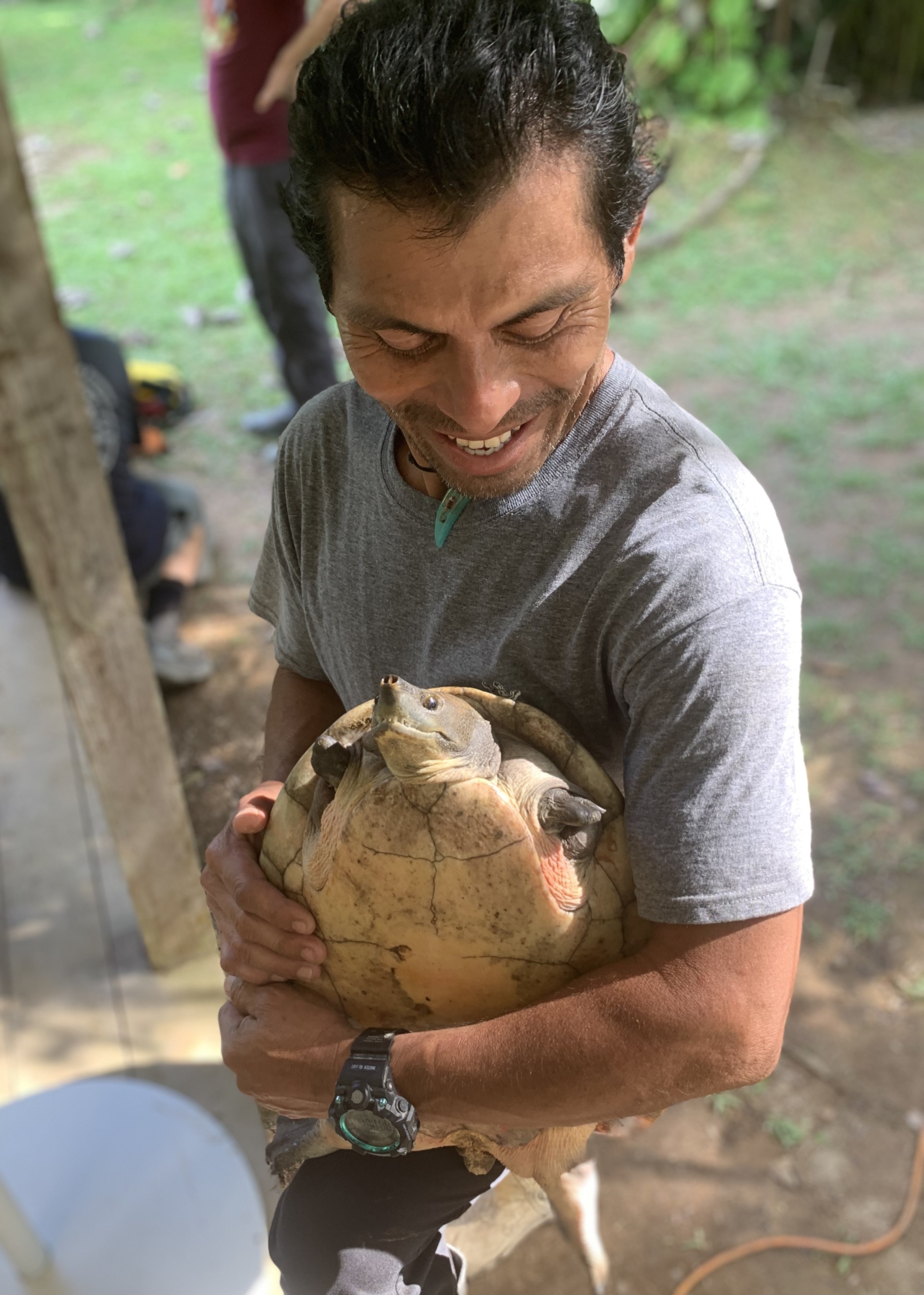
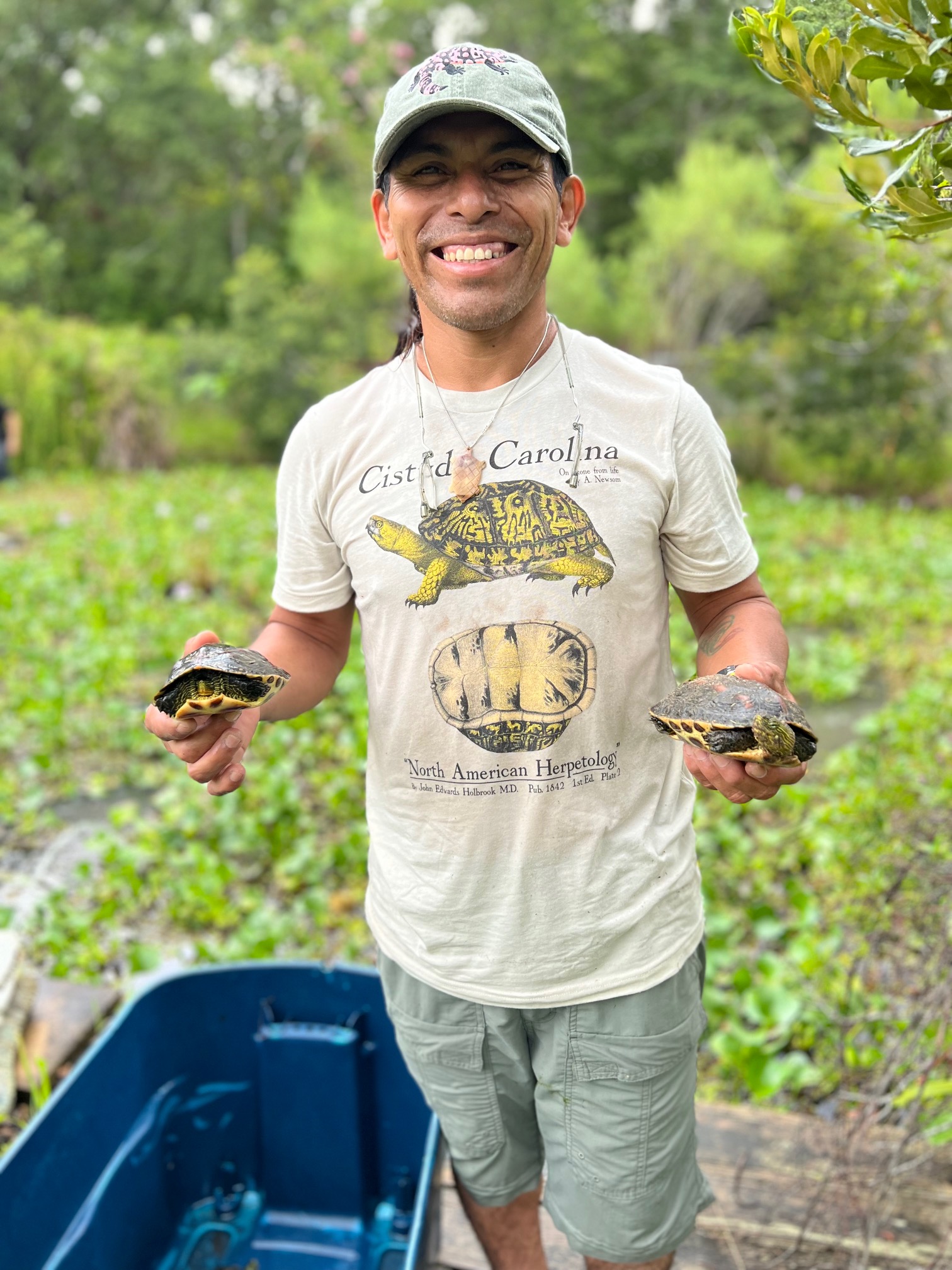
In 2010, Tom was selected as the lead field technician for Dr. Thomas Rainwater in the Turtle Survival Alliance’s country-wide aquatic survey to determine the status of the Critically Endangered Hicatee turtle. Tom worked tirelessly day and night for three months to survey river systems and lagoons across the country where Hicatee had been found during surveys 25 years before, and in several locations never surveyed.
Rainwater recounted, “Prior to the countrywide survey, it was suggested to me that Tom Pop would be a great field assistant because of his familiarity with the wetlands and forests of Belize and his diverse skillset, which ranged from capturing and handling wildlife to mechanical repair of vehicles and engines to cooking to swimming, climbing, and cutting trails to masterfully interacting with different groups of people (e.g., scientists, wildlife hunters/poachers, law enforcement officials, local villagers, students, etc.) in a variety of settings. That advice was the key to the success of our survey. Tom was hired, performed as advertised, and further, greatly exceeded expectations. We achieved our goal because of him. We are all fortunate Tom became involved with the hicatee survey and has since taken ownership of overseeing the Hicatee Conservation and Research Center at BFREE. It’s sobering to me to think of how much talent, passion, and conservation productivity might never have been realized if Tom had not been given that initial opportunity to assist with the survey. He has and continues to do amazing work, which he loves, and he is a strong and crucial example to others and Belize (and elsewhere) that anyone (and everyone) can make a significant difference in wildlife conservation”.
Tom views his work at the HCRC as part of his life’s journey. Although this has been his job, he has never treated his work like a job. This jungle is his home, his co-workers and researchers are his brothers and sisters, and these turtles are his children. There is never a question of “if” Tom will give 100% – he always does to those animals and plants who need him.
A few words from some who know and admire Tom
“Tom sees every turtle as one of his own and he aspires to re-populate the entire country of Belize with the turtles raised at the HCRC. Tom is also an educator. He has shown me different functions of animals within ecosystems, Hicatee behavior and most of all, he gave me an appreciation for the wildlife around. His is an inspiration and it’s a privilege to learn from him. I can’t think of a better person than Tom for this Disney Conservation Hero award. Congratulations, Tom!” Barney Hall, Wildlife Fellow at BFREE.
Steven Brewer, Plant Ecologist, Trees of Belize project, stated “I have worked and been friends with Tom for over twenty years. We have hiked and explored deep into Belizean rainforests, living and working among the tremendous challenges and wonders that accompany an unforgiving and remote tropical environment. Through it all, what stands out about Tom is his passion for learning about and connecting to Nature. Tom has a strong memory and keen eye for detail, discerning characteristics of plants and animals that would escape most scientists. For example, I have been impressed with Tom’s ability to look for and find plant species that I showed him only once or twice.”
Jacob Marlin of BFREE stated of Tom, “Broadly speaking, his wide breadth of knowledge of flora and fauna makes him a highly sought-after field biologist. He has supported the discovery of new species, long-term studies that have led toward all kinds of knowledge outputs including publications, books, presentations, documentaries.”
“Tom is not only a work colleague – he is a mentor and a dear friend. He encourages me to see the world around me for what it is – delightful and worthy of my attention. Tom’s smile makes me smile. His curiosity feeds my own. Together, we are explorers and anything is possible.” Heather Barrett, BFREE.
“For Tom, wildlife preservation and nurturing the next generation of conservationists aren’t merely tasks; they’re a way of life. His passion transcends mere profession, reflecting a deep-seated commitment ingrained in every aspect of his being. Today, we celebrate Tom Pop—an exemplar of conservation excellence, whose influence reverberates far beyond the boundaries of BFREE.” Jaren Serano, Dermatemys Program Coordinator, BFREE.
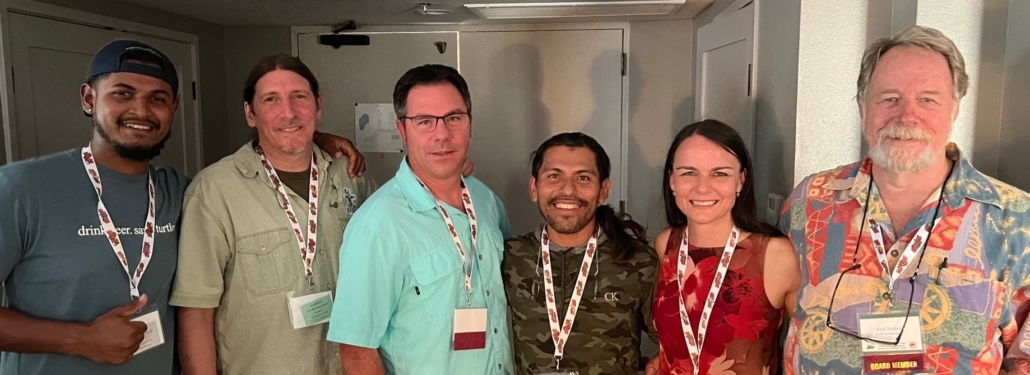
Interview with Tom about his work with the Hicatee
Upon receiving the award, I interviewed Tom about his conservation work.
What inspires you and keeps you motivated to study and conserve Hicatee turtles each day?
A lot of things inspire me here in Belize. Especially in the forest and at work. Everything around me motivates me: birds, wildlife, everything. I especially love and have taken responsibility for the Hicatee turtle because, I believe if I become the best at saving and protecting this turtle then I am saving a piece of the world.
You have played a crucial role in the recovery and protection of the Hicatee. Why is it so important that we conserve this species?
If we do not take the lead on saving species like the Hicatee that are going extinct, then who will? Someone just needs to stand up and try to do something to save the species. For me, I always think about the future. If we don’t do anything, then nobody will know about these turtles and the role they play in the environment, and they will just disappear. We don’t want that to happen for our species in Belize. When I say we, I mean all of us here at BFREE and all of us in Belize and all of us who care everywhere. If I just say “me,” then I have a very small power. If I say “we,” together, then we can really accomplish something.
What’s been the most challenging aspect of working with the species so far, and why?
The only challenging thing for me is keeping the water quality good for turtles in captivity. The water impacts the health of the turtles. If the water is stagnant or there is too much food left in the pond that degrades the quality and the turtles might get sick. Because the turtles live so long before they reproduce, then it is important for them to be healthy throughout their lives, so I spend a lot of time thinking about the water where they live.
What do you think are the biggest challenges to threatened turtles in Belize, and how do you think we best conserve them?
I think the turtles in Belize are getting threatened because the land around waterways like rivers and creeks are changing. More people are getting properties to live on and to farm close to the water, so the riparian forests are getting knocked down. This is removing vital habitat and food resources for wildlife. Also, more people are making access and paths to the rivers which is like an invitation to go and hunt turtles. These things impact the health of the rivers and creeks, and the health of the rivers and creeks impact the turtles and the other wildlife that live there.
What have you found to be the best way to engage Belizeans in turtle conservation?
You have to talk to people and educate them about the status of Belize’s wildlife and other natural resources. A lot of people still don’t know that there is a problem with the decline of species in Belize. People don’t want to hear that they shouldn’t eat something because you are taking food from their table. So, it is critical to educate people about the rapid decline of this turtle and to alert them that they are very near extinction.
Is there hope for the threatened turtle species in Belize?
Yes, there is! As long as you protect the rivers, creeks and lagoons where the turtles are functioning, then there is a chance. And if Belizeans understand how long turtles need to live before reproducing – at least 16 years – then maybe they wouldn’t eat them so quickly. The best way to protect the Hicatee is for the country to make a strong strategy with protocols on how to protect rivers and creeks. Then those strategies and protocols need to be enforced. There isn’t one thing or one person that will save the Hicatee but there is still hope if we all work together.
